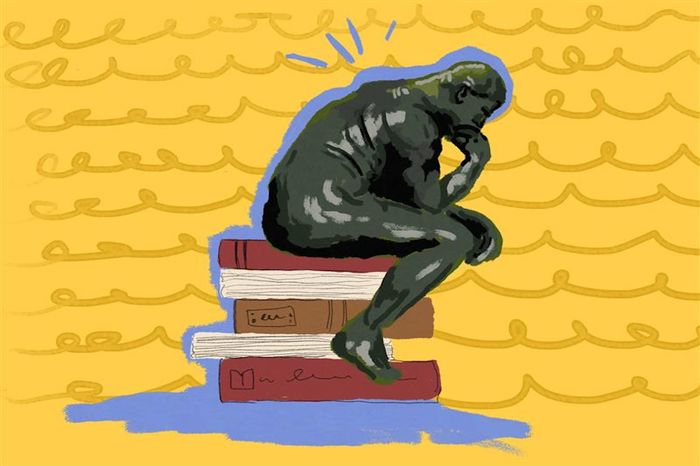The Reading List: facing your fear of insufficiency
Laila Hussey confronts her fears, delving into the assumed averageness of Johnathan Lethem

Recently, I challenged my fear of Jonathan Lethem with a cognitive behavioural treatment known in the field of clinical psychology as ‘Exposure Therapy’. The way this process works is by making a patient face their fears in a safe environment so they can learn that they really had no reason to be afraid of the thing at all. Like most fears, mine was irrational, and largely reflected my own insecurities, though I took it out on that poor novelist.
The thought of Jonathan Lethem used to fill me with anxiety. I would think about young Jonathan – maybe Johnny back then – arriving at university. Four decades and an ocean separates our experiences but, at its core, that’s a relatable situation. What’s also relatable is meeting highly intelligent and interesting people who are – and this is the worst part – your age.
“I was conscious that I was engaging with the runt of the group and that this would lock my future with his past”
I can only imagine this is how young Johnny Lethem felt, arriving at Bennington College in the autumn of 1986 and making friends with Donna Tartt (who would go on to write The Secret History and The Goldfinch) and Bret Easton Ellis (American Psycho). The latter, understood now to be the Voice of Generation X, the former, a serious literary heavyweight with a Pulitzer under her belt and a limited but powerful body of work to her name. I wonder if Lethem ever sat across from his two contemporaries, maybe in the dining hall or the student bar, and thought, they have something that I don’t. Did he expect this trajectory for his friends? Did he expect it for himself as well?
Of course, I’m not being very fair to Lethem. He’s a famous novelist in his own right, with awards and movie adaptations and fellowships. But, unfairly or not, I can’t seem to shake the sense that there’s a curse attached to him. That’s partly why on a subliminal level, I’ve always tended to avoid his stuff. American Gen-X fiction is very important to me, so why haven’t I read Motherless Brooklyn or Fortress of Solitude? They’re part of the skyline of my bookshelf, gathering dust in between Rosemary’s Baby (Levin) and Women in Love (Lawrence). What can logically explain my blind spot, my wilful ignorance?
“There’s a secret third kind of person involved in this: that person who is so afraid of being the underachiever that they don’t try at all”
Paranoia, plain and simple. I went into reading my first Lethem book (and the recommendation for today’s instalment) with a mixture of emotions ranging from distrust to pity. I had a prejudiced idea that his work was going to be noticeably shadowed by the accomplishments of his contemporaries. I thought I’d be unable to really get into the book due to unhelpful and cruel interjections from my subconscious telling me that Tartt would never write like that, or that Ellis must read this and scoff. I was so consciously aware that I was engaging with who I thought was the runt of the group and that this would, in some cosmic way, lock my future with his past. In short, I thought that there was such a thing as the Lethem Effect, and I feared it was contagious.
Completely unfair, reductive, and judgemental – I hold my hands up. I enjoyed Lethem’s third novel, As She Climbed Across the Table (1997), more than I thought I would. Set on the fictional campus of a Northern Californian university, the plot follows an atypical route of boy-loses-girl. But Philip Engstrand’s girlfriend, the particle physicist Alice Coombs, isn’t leaving him for another man, but the project she’s been working on in the quantum physics lab – a study of something vacuum/wormhole related (not a woman-in-STEM, apologies). It’s light, its irreverent, and vaguely reminiscent of the John Green novels of my tweenhood (a compliment, not a pejorative). For a first foray into Jonathan Lethem, you can’t go wrong reading this highly accessible, consume-in-one-sitting novel.
My point is this: I may be right in thinking that that friend of mine who’s a walking encyclopedia will do great things. I may be right in thinking that I don’t have whatever it is that separates the Donna Tartts from the Jonathan Lethems, but there’s only one way to find out. There’s a secret third kind of person involved in this, and it’s that person who is so afraid of being the underachiever that they don’t try at all. They’re not Donna Tartts or Jonathan Lethems – they’re nameless.
 Comment / Cambridge students are too opinionated 21 April 2025
Comment / Cambridge students are too opinionated 21 April 2025 News / Candidates clash over Chancellorship25 April 2025
News / Candidates clash over Chancellorship25 April 2025 News / Cambridge professor paid over $1 million for FBI intel since 199125 April 2025
News / Cambridge professor paid over $1 million for FBI intel since 199125 April 2025 News / Zero students expelled for sexual misconduct in 2024 25 April 2025
News / Zero students expelled for sexual misconduct in 2024 25 April 2025 Comment / Does the AI revolution render coursework obsolete?23 April 2025
Comment / Does the AI revolution render coursework obsolete?23 April 2025






